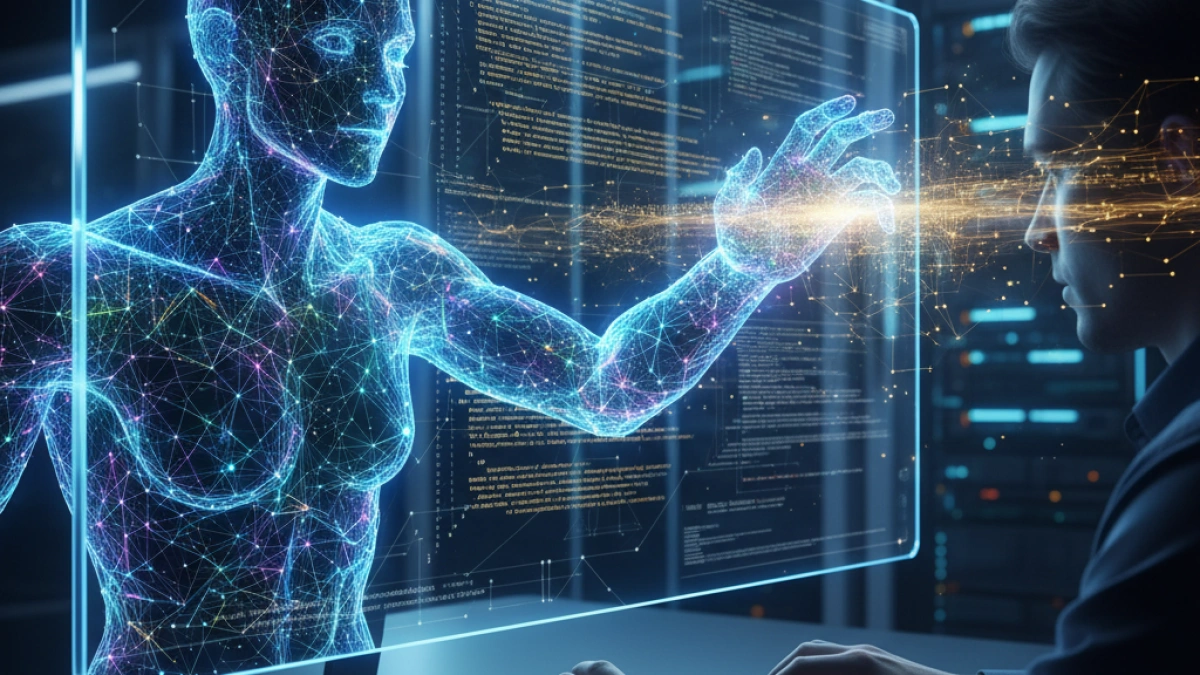Gemini 2.5 by Google: The AI that surpasses the best programmers in the world


Artificial intelligence is advancing by leaps and bounds, surprising both its creators and the tech community. The latest achievement in this evolution is presented with Gemini 2.5, an AI model developed by Google that has reached an unprecedented milestone in the field of programming. This advancement has left human programmers astonished, drawing a parallel with the historic triumph of Deep Blue over Garry Kasparov.
A Highlighted Milestone in Programming
Gemini 2.5 has established itself as the first artificial intelligence to win a gold medal in an international programming competition held in Azerbaijan. However, beyond this recognition, what is truly significant is the way it achieved this success, employing lateral thinking, imagination, and creativity—key elements in the development of Artificial General Intelligence (AGI).
Quoc Le, Vice President of Google DeepMind, compares this moment to previous milestones in the history of artificial intelligence: “For me, it’s a moment equivalent to Deep Blue for chess and AlphaGo for Go.”
In 1997, the supercomputer Deep Blue, developed by IBM, made history by defeating world chess champion Garry Kasparov, an event that shocked the world. Now, Gemini 2.5 has taken a similar step in the field of programming.
Advances Toward AGI
The performance of Gemini 2.5 is particularly noteworthy given that it has been designed and trained specifically to solve problems in programming and extremely complex mathematics. Google claims that its performance was compared to that of the top 20 programmers in the world. At the event in Azerbaijan, the AI completed ten out of the twelve tasks assigned to it, finishing in an impressive second place among 139 of the most talented university-level programmers present.
One of the hardest challenges faced by Gemini 2.5 involved sending a liquid through a network of pipes to a set of interconnected reservoirs, where speed and precision were essential. The complexity of this task was such that it required evaluating an almost infinite number of possibilities. Despite the challenge, the AI managed to complete the task in under 30 minutes, successfully overcoming a challenge that even human teams—including the top universities in Russia, China, and Japan—could not resolve.
The most striking aspect of this success is that the problem was not merely theoretical but represented a real-world situation: the efficient transport of water through pipes. To tackle this challenge, Gemini 2.5 had to apply deep abstract reasoning and demonstrate a genuine spark of creativity, generating novel solutions to unprecedented problems, as noted by the company.
Perspectives on Artificial Intelligence
The milestone of Gemini 2.5 has stirred excitement in the scientific community, but experts caution that it is important to maintain a realistic perspective. Stuart Russell, a prominent computer science academic at the University of California, Berkeley, stated that despite the significant advancement, its practical impact remains limited. He noted that even though Deep Blue defeated Kasparov nearly 30 years ago, that event has not significantly transformed the application of artificial intelligence in the real world.
For his part, Michael Wooldridge, professor of the fundamentals of artificial intelligence at the University of Oxford, questions the hardware capacity required to achieve such feats. In his statements to The Guardian, he expressed interest in knowing how much computing power was used to accomplish this. Although Google has not disclosed specific information about the hardware, Wooldridge posits that if resolving such issues requires a full data center, the achievement might not be as groundbreaking.
The Need for Sustainable Energy Consumption
For many experts, the real revolution in artificial intelligence will arrive when similar results are achieved with hardware that has acceptable energy consumption and costs. Gemini 2.5's ability to solve a real-world problem that no team of the best young programmers could complete highlights the importance of artificial intelligence's achievements, bringing it a step closer to AGI.
It is crucial to continue observing and analyzing how these advancements in artificial intelligence evolve and how they could gradually affect the way we work and live. The evolution toward more advanced and capable artificial intelligence presents both exciting opportunities and considerable challenges for programmers and the tech world as a whole.
In conclusion, Gemini 2.5 marks a significant moment in the history of artificial intelligence, akin to other iconic milestones of the past. As the field progresses, the implications of these developments will continue to spark debate in the tech and academic communities.
For more interesting content on technology and advancements in artificial intelligence, feel free to keep exploring my blog.















